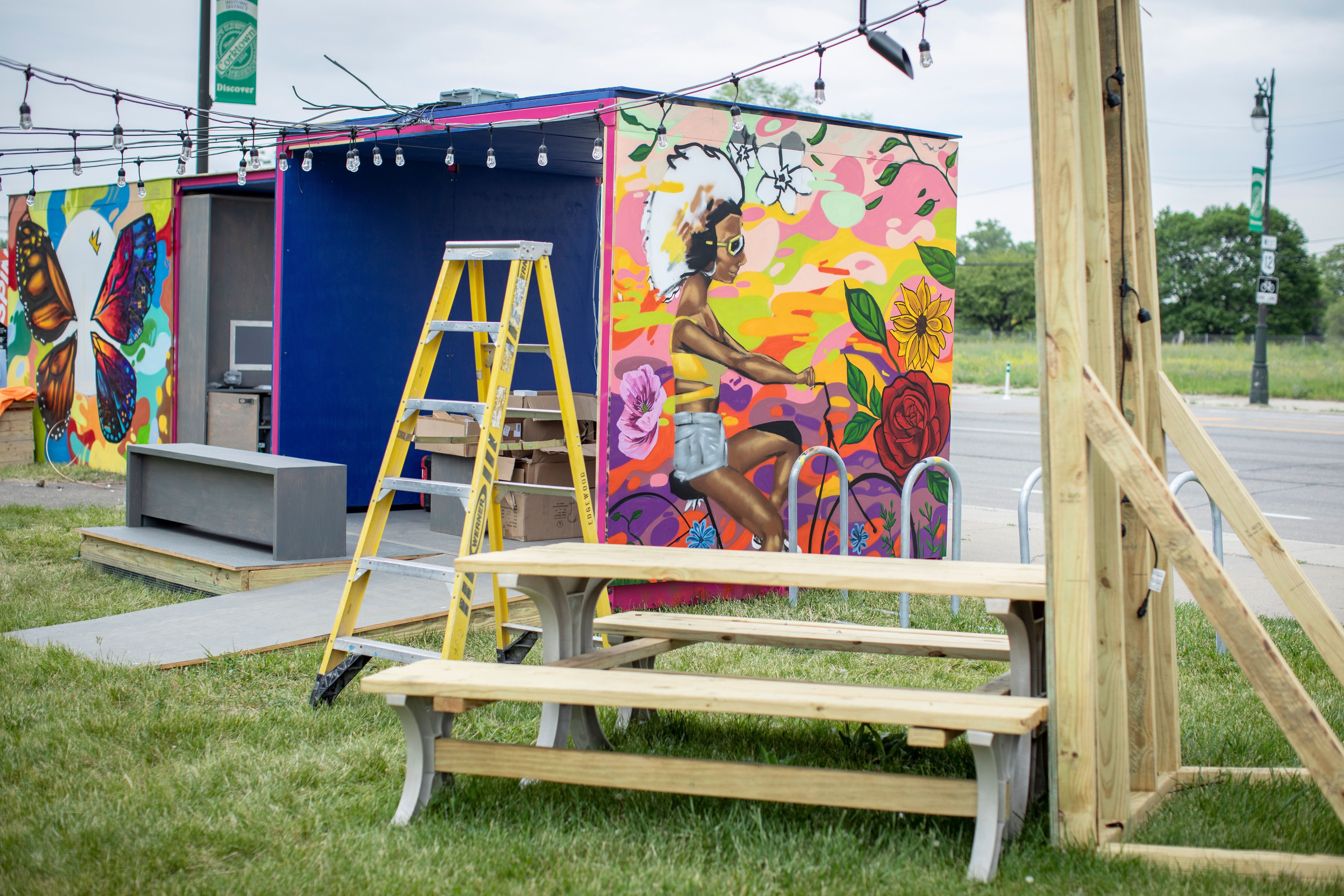
About two years ago, Ford launched the City:One Michigan Central Station Challenge with the City of Detroit Office of Mobility Innovation and what is now the Office of Future Mobility & Electrification to identify proposals that could help improve the way people move around Michigan Central Station and the surrounding communities. At Ford, our goal was to engage local officials, businesses and communities in a conversation focused on improving mobility for those living, working and visiting the area around the train station.
Now, one of the three winning proposals is taking a step closer to reality — driven by an ambitious team of high school girls whose dedication to their project persisted even in the midst of a global pandemic.
Working as a part of the nonprofit Mercy Education Project’s College and Career Readiness Program, the group of eight 11th grade students from Detroit proposed the creation of multi-purpose mobility hubs that would provide safe and easy access to transportation information and mobility services. Each station was envisioned to feature information for how and when to access mobility, highlight local businesses to visit, and act as a hub that links people to various modes of transportation like bikes, buses, scooters and ride-hailing services.
Chosen out of 164 proposals, the mobility hub has a clear focus on engaging the community and reflecting its needs — these students were all about creating a safe place where people could access mobility services, learn about what options were available to them, and have the opportunity to connect with others. As one of the winners, the Mercy Education Project received $85,000 in funding to build out a model hub and test out their idea.
Located at Roosevelt Park in front of the Michigan Central Station which is now being restored by the Ford Motor Company, the mobility hub will be available for use until June 25 and offers various features:
· Mobility services: From a nearby bus stop to MoGo bike stations across the street, the hub offers quick access to various transportation options. The mobility hub itself will provide bike racks for individual riders to park their bikes, access to Spin scooters and chargers, and a convenient pick-up location for ride-hailing. A digital screen will display transit data and other information.
· Safe community space: The hub features a sheltered waiting area with benches, picnic tables, Wi-Fi access, smart device charging and a makeshift stage that can be used for pop-up performances or community events. To improve security and visibility, lighting is provided by a new solar array from DTE that will power all available assets, including the Spin scooter e-charging station, digital monitor and device charging ports.
· Murals by Detroit-area artists: In collaboration with Garage Cultural, the hub will sport murals created by local artists that explore themes of women empowerment, movement and mobility.
Additionally, the mobility hub will host several events throughout June that showcase its multiuse potential. Wayne Health/Wayne State University, which Ford has teamed up with to provide mobile COVID testing, will bring its health units to the hub for two weeks, offering a variety of health services including testing and vaccinations at times that are convenient for the community.
I was so impressed with the dedication and high level of professionalism of these young women. Despite the challenges caused by the pandemic, they not only decided to keep the project going, but never lost sight of their core mission — represent the community’s culture, provide a fun atmosphere for others, and create a functional environment that keeps people moving. Now the hub is ready for a public demo — and it’s even better than what they originally imagined.
“What started as a fun community project before the holiday break in 2019 has truly transformed into something inspiring for Detroit,” said Nicole Meunier, director of fund development, Mercy Education Project. “It’s been an honor to lead these girls and watch them become young women who will have a great impact on their community as they enter college in the fall and become active leaders in the future.”
It’s moments like these that make me really proud of the work we’re doing through the City:One Challenge. Mobility hubs may not be a new concept, but a forum like City:One gives people the chance to come together and be really considerate about how these types of installations look, feel and serve the community.
Finally, I’d like to recognize all those who contributed to the creation of this mobility hub. To Mercy Education Project; the City of Detroit, Office of Future Mobility & Electrification I Michigan Economic Development Corporation; SmithGroup; Christman | Brinker Corktown Transformation JV; Spin; Verizon; Garage Cultural/Art on the Block with artists Dayana Juarez and Demaciiio; Michigan Central; Farmboy Fine Arts; DTE Energy; Laidlaw & Morgan Lighting Group; Pepperl + Fuchs; Disenos Ornamental Iron; Caniff Electric Supply; Edgewood Electric; Brinker Team Construction; FPB STUDIO DESIGN X BUILD and Wayne Health/Wayne State University — thank you for all your hard work and support.
